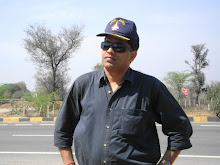Many of my friends put a poser to me about the ‘lower than expected’ turnout of voters in Mumbai in the recent assembly polls in Maharashtra. Quite a few of them were shocked that on the crucial day of political choice, many members of the otherwise conscious 'civil society' went missing from the polling booths.
Mumbai is just a case in point. It’s true of all major cities. It has always been noticed that voter turnout is more in rural areas as compared to urban centres. But surely, it doesn’t reflect a lack of political consciousness.
In fact those in the urban areas are politically more vibrant. Reading newspapers, watching news channels and living room discussions on politics are all forms of political participation of a class that is seen as opinion-maker. There is hardly a living room in a city like Mumbai where politics of the day is not discussed or read about. Then there are the occasional rallies of the like seen after the 26/11 terror attacks in Mumbai. The question is why doesn’t it translate into attendance (more than what we see) in the polling booths?
Some would say these are double standards by members of the civil society. May be! But there is the other side of the argument too. To my mind, one main reason could be logistical. A substantial chunk of people in cities live in rented accommodation and move residences between elections. There names go missing from the electoral rolls or remain in the old colony that might be many kilometres away, a clear disincentive to vote. A large number of people also don’t bother to go the electoral office to get them registered again or get a new voter I-card with the changed address. Call it lethargy, but the process of getting a new voter I-card is indeed cumbersome for the busy professional.
It’s difficult to imagine somebody travelling from Boriveli to Vrar to cast his vote if he has changed residence since the last elections. In such cases, the temptation is to rather spend the polling day 'holiday' catching up with family and friends. The latest proposal to grant the poll holiday only to those who give proof of having cast their vote seems to be a good idea.
The next step is to think of ways to make the process of registration of name in the electoral list much more convenient for the busy professional or overworked daily wager. Also the cut-off date should be as close to the polling day as possible instead of what’s in vogue today.
The last stage in the evolution could be heralding in 'digital democracy' enabling people to vote from their PCs or laptops from the confines of their offices or living rooms. This would do away even with what many see as the hassle of standing in queue at the polling booth. The world is yet to see this as of now. But it can well be a workable idea in the land from where the world takes lessons in information technology.
Nandan Nilekani has been tasked with the unique national identification project. Perhaps, he can look beyond to make this a reality. That would be the real hallmark of the digital age that we boast of living in today.




It is ultimately the urge vote that matters, howsoever technology would make it accessible. It is always 'rural India votes and urban India rules' Nilekani would not bring people to polling booths.
ReplyDelete